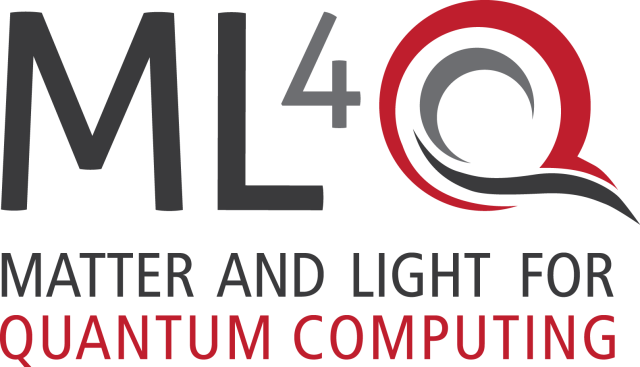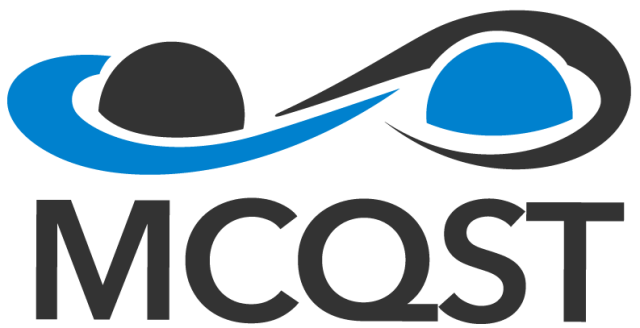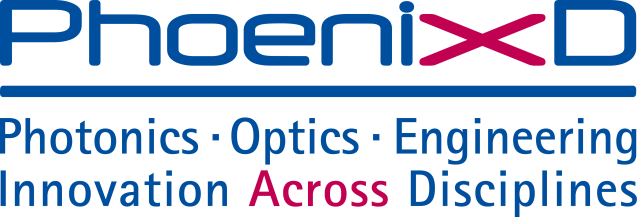Partner institutions
Discover the cutting-edge research within the Quantum Alliance, the various support programs for early career researchers and young investigators offered at participating institutions, and check out the upcoming events for the scientific community from academia and industry as well as for the broader public. Visit each center's website for more details.
Berlin Quantum
Freie Universität Berlin | Humboldt-Universität zu Berlin | Technische Universität Berlin
BERLIN QUANTUM aims to promote Berlin as a globally recognized, collaborative research community that stimulates innovation in quantum science and technology. We see our particular strengths in the areas of quantum photonics implementations and quantum information theory. BERLIN QUANTUM pursues an interdisciplinary and cross-sector vision to make Berlin a global leader in the field of quantum technologies. The Berlin University Alliance is coordinating the scientific related activities of the initiative.
www.berlinquantum.de | @Berlin_Quantum | berlinquantum@physik.tu-berlin.de
Complexity and Topology in Quantum Matter
Julius-Maximilians-Universität Würzburg (JMU) | Technische Universität Dresden (TUD)
The cluster ct.qmat is a leading international center for research on topological and complex quantum matter. Our aim is to develop a deep understanding of quantum phenomena in general and to identify materials in which those phenomena are observed in the laboratory, with the goal to prove and enable novel applications.
www.ctqmat.de | ct.qmat@uni-wuerzburg.de
CUI: Advanced Imaging of Matter
Universität Hamburg | Deutsches Elektronen-Synchrotron (DESY) |
Max Planck Institute for the Structure and Dynamics of Matter | European XFEL
The cluster’s central objective is to understand emergent phenomena of matter and – going one step further - to dynamically create new functionalities. Non-equilibrium emergence – its understanding and control – is the overarching theme of the cluster. Central to its success is the imaging of the dynamics of complex physical and chemical systems in real time, on the atomic scale.
www.cui-advanced.uni-hamburg.de | cui.office@cui.uni-hamburg.de
Matter and Light for Quantum Computing
University of Cologne | RWTH Aachen | University of Bonn | Research Center Jülich
The aim of ML4Q is to develop new computing and networking architectures using the principles of quantum mechanics. Computing and networking power beyond anything classically imaginable would make quantum computers powerful tools in key areas such as materials design, pharmaceutics, or artificial intelligence. Quantum communication could be made effectively secure.
www.ml4q.de | ml4q-office@uni-koeln.de
Munich Center for Quantum Science and Technology
Ludwig-Maximilians-Universität Munich (LMU) | Technical University Munich (TUM) |
Max Planck Institute of Quantum Optics (MPQ) | Walther-Meissner-Institute (WMI) | Deutsches Museum (DM)
MCQST brings together more than 50 research groups from various disciplines to collaborate on an ambitious research program covering all fields of quantum science and technology (QST). The main goal is to discover and understand the novel and unifying concepts of QST, making them tangible and practical for the development of next generation quantum devices.
www.mcqst.de | info@mcqst.de
QuantumFrontiers
Leibniz Universität Hannover | TU Braunschweig | Physikalisch-Technische Bundesanstalt |
Max Planck Institute for Gravitational Physics (Albert Einstein Institute) | Laser Zentrum Hannover e.V. | University of Bremen, ZARM
The mission of QuantumFrontiers is to merge quantum metrology and nanometrology, in order to advance to the next level of unprecedented sensitivity and precision, and to push the bounds of knowledge at the largest and smallest dimensions: from gravitational wave astronomy to the manipulation of light and matter on the quantum level.
www.quantumfrontiers.de | office@quantumfrontiers.uni-hannover.de
Integrated Quantum Science and Technology
University of Stuttgart | Ulm University | Max Planck Institute for Solid State Research, Stuttgart
It is our main goal to establish quantum science and technology as a new discipline across borders of traditional research fields and to revolutionize the technology and the principles of quantum sensing especially for applications in life sciences, materials science and medical diagnostics.
www.iqst.org | @IQSTpress | iqst@iqst.org
PhoenixD
Leibniz Universität Hannover | TU Braunschweig | Laser Zentrum Hannover e.V. | Max Planck Institute for Gravitational Physics (Albert-Einstein-Institute)
PhoenixD looks to the future of precision optics. Its core concept is to merge optical systems, design and simulation tools with all relevant production technologies into one combined platform so as to create individualized and highly-functional optical devices – on demand, to the highest accuracy and with novel functionalities.
www.phoenixd.uni-hannover.de | office@phoenixd.uni-hannover.de







